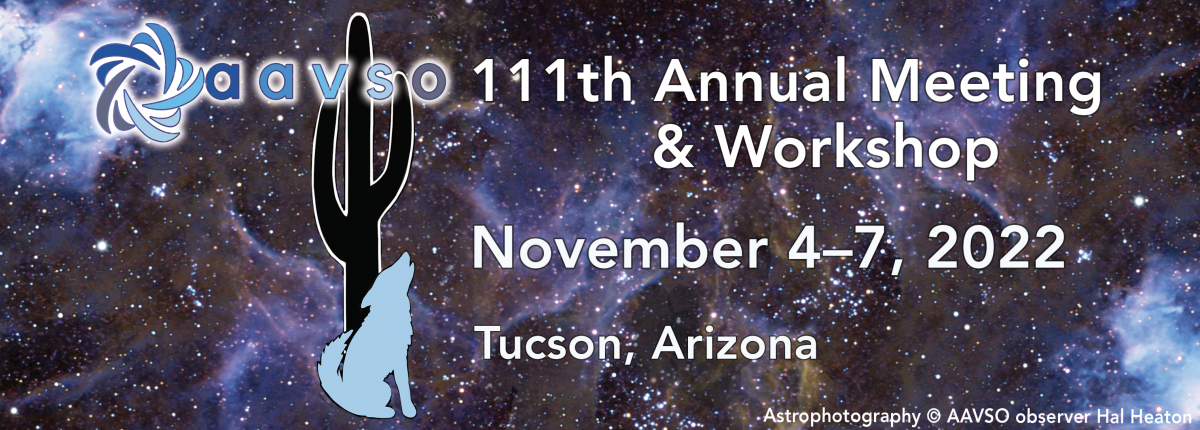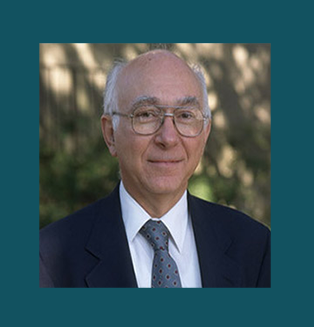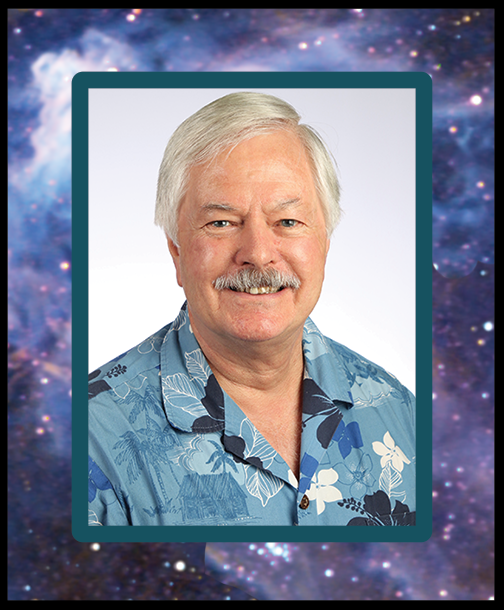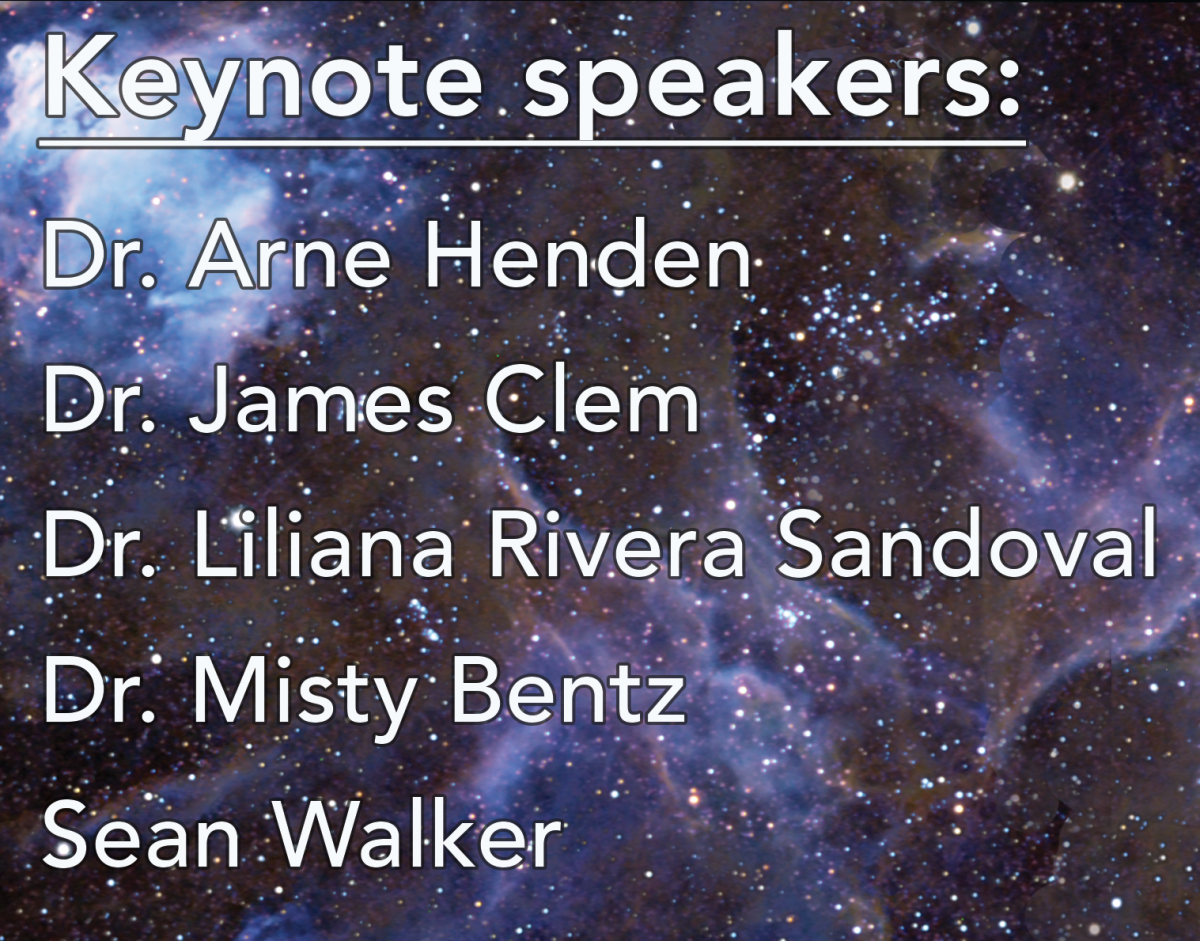
Jan. 13, 2022:"Proceedings of the 111th Annual Meeting of The American Association of Variable Star Observers" is now available!------------------------------------
The Annual Meeting will be held at The Omni Tucson National Resort, and include an opening reception Nov. 4, and a closing banquet with trivia and a raffle on Nov. 6. The keynotes and other research presentations on Nov. 5 & 6 will also be broadcast to both in-person and online attendees. The "Advanced Use for AstroImageJ Workshop" will be in-person only on Nov. 7. See the schedule and talk abstracts below! |
|
Please note:
Read the talk abstracts
Monday, November 7--Workshop: Advanced Use of AstroImageJ for Exoplanet Observing with Dennis Conti! 8:30 a.m. to 4:00 p.m. MST. (Please note: no events will take place on November 8)
|
 |
During our 2022 Annual Meeting, the AAVSO begins a new tradition: the Arlo U. |
|
The 2022 Arlo Landolt Award recipient and guest speaker: Dr. Arne Henden! Dr. Arne Henden received his doctorate from Indiana University, and subsequently worked for Goddard Space Flight Center, The Ohio State University, and the U.S. Naval Observatory as an instrumentation specialist. For the last decade of his career, he served as the director of the AAVSO. He retired to New Hampshire, where he currently runs several automated telescopes. Dr. Henden is the author of a textbook and several hundred scientific articles, and has given lectures worldwide. |
 |
| Dr. Henden will be discussing special elements of the AAVSO Photometric All-Sky Survey (APASS). APASS was started from discussions with Arlo Landolt, and was awarded an NSF grant based on his support of the project. All-sky calibration is necessary for the AAVSO to provide comparison stars for targets of interest, and APASS was designed to meet that goal. Arne will highlight the early history of the all-sky calibration project, as well as comparisons with other surveys. He will also announce the status of DR11, the next formal release of APASS. Dr. Henden will then conclude by describing the new XPASS and APASS2 projects, with their all-sky completion and bright-star extension, along with volunteer opportunities for helping with the survey. |
|
Questions? Email aavso@aavso.org
|


